- Home
- / CL Answers
- / Do any supplements, foods or lifestyle modifications help with brain function, like memory and cognition?
www.consumerlab.com/answers/do-any-supplements-help-with-brain-function/supplements-for-memory/
Save to favorites
This feature is restricted to active members.
Join now to save favorites and get all member benefits, including over 1,400 reviews.
Join NowAlready a member? Sign in here.

Our Members Asked:
Do any supplements, foods or lifestyle modifications help with brain function, like memory and cognition?
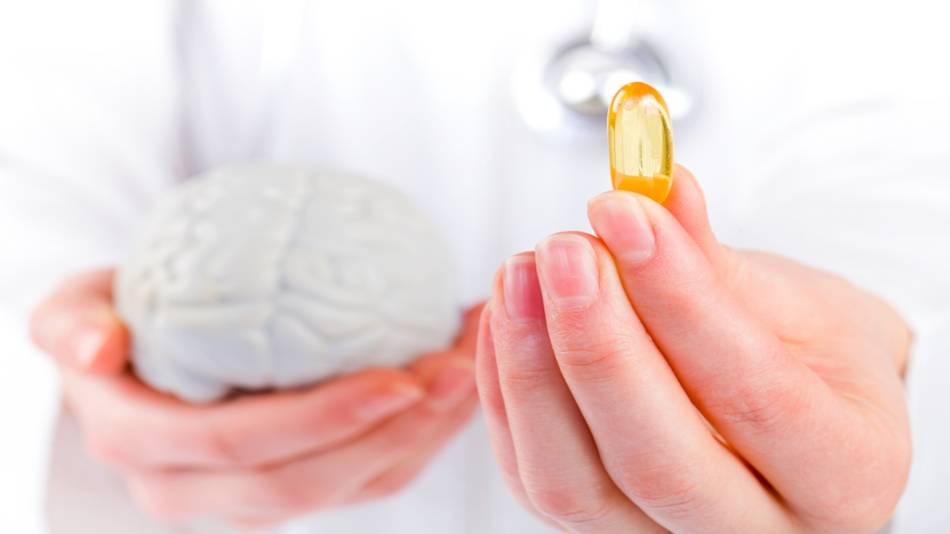
Answer:
There is preliminary evidence that certain supplements modestly improve various aspects of memory or cognition. These benefits include boosting memory in people who do not have memory problems as well as improving memory or cognition in people with age-related cognitive decline, Alzheimer’s disease, and other forms of dementia. At the same time, several supplements have not been shown to help with memory or cognition.
In addition, certain foods, diets, and lifestyle changes have been associated with improvements in cognition or a decreased risk of dementia.
Sign in as a member to find out if any of the following supplements help with brain function: 5-HTP, acetyl-L-carnitine, apoaequorin (the main ingredient in Prevagen), ashwagandha, bacopa, benfotiamine, beta-alanine, BrainPhyt (a microalgae extract found in Gundry MD's Power Phenols Brain Health Supplement), choline, cocoa flavanols, coenzyme Q10, coffee or coffee extracts, Cognivia (a sage extract), cranberry, creatine, curcumin (from turmeric), fish oil, ginger, Ginkgo biloba, grape seed extract, green tea, huperzine A, inositol-stabilized arginine silicate, iron, ketones, L-arginine, L-carnosine, lion's mane, lithium (low dose), lutein and zeaxanthin, magnesium, magnolia bark extract, medium chain triglycerides (MTC), melatonin, multivitamins, nicotinamide riboside, peppermint tea, phosphatidylserine, plasmalogen, PQQ (pyrroloquinoline quinone), prebiotics (such as Sunfiber), probiotics, soy isoflavone genistein, spermidine, sulforaphane, vinpocetine, and vitamins B-12, D, and E.
Also find out which foods (such as eggs or citrus fruits), diets (such as the Mediterranean and MIND diets) or lifestyle modifications may be beneficial, and learn about ingredients promoted for memory and cognition that are not permitted to be sold as supplements.
In addition the results of its expert testing, ConsumerLab uses only high-quality, evidence based, information sources. These sources include peer-reviewed studies and information from agencies such as the FDA and USDA, and the National Academy of Medicine. On evolving topics, studies from pre-print journals may be sourced. All of our content is reviewed by medical doctors and doctoral-level experts in pharmacology, toxicology, and chemistry. We continually update and medically review our information to keep our content trustworthy, accurate, and reliable. The following sources are referenced in this article:
- Abe, Nutrients 2024
- Babault, Front Nutr 2021
- Barnes, N Engl J Med 2023
- Borsa, Int J Environ Res Public Health 2021
- Chen, Geriatr Nurs 2022
- Chen, JAMA Netw Open 2023
- Cohen, Clin Toxicol (Phila
- Cohen, JAMA 2024
- Colcombe, J Gerontol A Biol Sci Med Sci 2006
- Cooksey, PLoS One 2020
- Dhana, Neurology 2020
- Doraiswamy, JAR Life 2023
- Fahey, PLOS ONE 2015
- Galluzzi, Nutr J 2024
- Gibson, J Alzheimers Dis 2020
- Gomm, JAMA Neurol 2016
- Goodbody, Front Aging 2025
- Hersant, CNS Drugs 2023
- Kean, Am J Clin Nutr 2015
- Lee, Biomol Ther (Seoul
- Lenze, JAMA 2022
- Li, Maturitas 2024
- Miller, Br J Nutr 2021
- Moayyedi, Gastroenterology 2019
- Montero-Odasso, Alzheimers Dement 2022
- Netzler, Hum Psychopharmacol 2025
- Nicoli, Clin Nutr 2021
- Nouchi, Front Aging Neurosci 2022
- Nowotarski, Expert Rev Mol Med 2013
- Pan, J Nutr 2024
- Pengsuwankasem, Neurosci Lett 2023
- Routray, Compr Rev Food Sci Food Saf 2011
- Schwarz, JAMA Netw Open 2022
- Senekowitsch, Nutrients 2023
- Shishtar, Am J Clin Nutr 2020
- Viña, Alzheimers Res Ther 2022
- Wightman, Nutrients 2021
- Wu, Sci Rep 2021
- Yoo, Nutrients 2024
- Yordi, Mar Drugs 2024
- posted online
Join today to unlock all member benefits including full access to all CL Answers and over 1,400 reviews.
Join NowAlready a member? Sign In Here.
Join now at www.consumerlab.com/join/
Agree to Comment Terms
Please abide by the following:
- If you make a statement of fact, such as whether a type of treatment does or does not work, state your basis -- such as personal experience or a published study.
- If you make a positive or negative comment about a product, note whether or not you have a financial interest in the product or in a competing product.
- Please be respectful in your tone.
- Please do not submit any type of HTML markup or scripting as it will not be accepted, nor will posts that exceed 2,500 characters.
For your privacy, only your first name (from your account) followed by a random number will appear with your comment. Your last name and email address will not be displayed.
Your comment has been submitted
We will review your comment before it is posted.

Related Reviews (7)
Latest Research Updates (Clinical Updates)
Vitamin D for Memory?
June 12, 2025
Does taking vitamin D improve memory in people with age-related cognitive decline? Find out what a recent study showed in the Memory and cognitive decline section of our Vitamin D Supplements Review, which includes our Top Picks for vitamin D.
BrainPhyt for Cognition?
May 08, 2025
Probiotic for Memory?
May 05, 2025
Did taking a probiotic improve memory or cognitive function in healthy older men and women? See what a recent study found in the Cognitive function section of our Probiotics Supplements Review, which includes our Top Picks among probiotics.
Lion’s Mane for Cognition?
April 17, 2025
Did taking lion’s mane improve cognition or mood in a recent study? Find out in the What It Does section of our Lion's Mane and Chaga Supplements Review, which includes our Top Pick for lion’s mane.
Peppermint Tea for Cognition?
April 10, 2025
Juice Plus for Cognition?
February 13, 2025
Did taking Juice Plus+ improve cognitive function in a recent study? Find out in the What It Does section of our Fruits, Veggies, and Other Greens Supplements Review, which includes our Top Picks among products.
Carnosine for Cognition?
February 10, 2025
Does taking L-carnosine improve cognitive function in healthy people? Find out what a recent study showed in our article: Are L-carnosine supplements helpful and safe?
Nicotinamide Riboside for Cognition?
January 20, 2025
Did nicotinamide riboside improve memory, attention or cognition among older people with cognitive decline in a recent study? Find out in the Nicotinamide riboside section of our NAD Booster Supplements Review, which includes our Top Picks for nicotinamide riboside.
Creatine for Cognition?
November 25, 2024
Does taking creatine improve cognitive function or memory? Find out what a panel of experts recently concluded in the Memory and Cognition section of our Creatine Supplements Review, which includes our Top Picks for creatine.
Cognivia for Cognition?
November 18, 2024
Citrus for Cognition?
November 07, 2024
Prevagen vs Plasmalogen
October 10, 2024
A recent study compared the effects of Prevagen on memory and cognition in older men and women with a plasmalogen supplement, which is also promoted for brain benefits. Find out if either helped in our article about plasmalogens and our article about Prevagen.
Benfotiamine & Alzheimer’s
October 02, 2024
Can taking benfotiamine (a derivative of vitamin B-1) slow cognitive decline in people with mild cognitive impairment or Alzheimer’s disease? See what research suggests in our B Vitamins Supplements Review, which includes our Top Picks among B vitamins.
Supplement for Memory?
August 26, 2024
Also see: Do any supplements, foods or lifestyle modifications help with brain function, like memory and cognition?
Sulforaphane (from Broccoli)
July 09, 2024
Poor Quality "Memory Supplements" Sold on Amazon
February 27, 2024
Lion’s Mane for Cognition?
December 23, 2023
Also see: Do any supplements, foods or lifestyle modifications help with brain function, like memory and cognition?
Naps to Boost Cognition
October 17, 2023
Do afternoon naps improve cognitive function and sleep among people with mild cognitive impairment? Find out what a recent study showed in the Lifestyle Modifications section of our article about memory and cognition.
Blueberries to Reduce Alzheimer’s Risk?
September 01, 2023
Consumption of fruits high in anthocyanins, like blueberries, is associated with a lower risk of Alzheimer’s disease. Does consuming large amounts of blueberries reduce markers of Alzheimer’s? See what a recent study found in our article about supplements and foods for memory.
Diet & Dementia
July 28, 2023
Does following a healthful diet help prevent cognitive decline among older people? Find out what a recent study showed in the Diet Modifications section of our article about supplements, foods or lifestyle modifications for memory and cognition.
PPI Use & Dementia?
May 19, 2023
Does the use of proton pump inhibitors (PPIs) that reduce stomach acid, like omeprazole, increase the risk of dementia? Find out what research suggests in our updated CL Answer about supplements and brain function.
Spermidine for Memory?
April 28, 2023
Higher intakes of the compound spermidine from the diet have been associated with a lower incidence of cognitive decline, but does taking spermidine have this benefit? Find out in our article: Do any supplements, foods or lifestyle modifications help with brain function, like memory and cognition?
Cognitive Benefits of Walking and Tai Chi
April 11, 2023
Walking and tai chi both improved cognition in men and women with mild cognitive impairment in a recent study, although one was better. Learn more in our article about supplements and lifestyle interventions for memory and cognition.
Exercise for Memory?
December 16, 2022
Does regular exercise, alone or combined with mindfulness meditation, improve memory and cognition in older men and women? See what a recent study found in our updated article about supplements, foods, and lifestyle modifications for memory and cognition.
Soy Isoflavone for Alzheimer’s?
November 08, 2022
Can supplementing with genistein, a soy isoflavone, improve cognitive function in people with Alzheimer’s disease? Find out what a recent study showed in our CL Answer about supplements for memory and cognition.
Alzheimer's and Oral Care
October 25, 2022
A recent study suggests that enhanced oral care may help slow cognitive decline in people with Alzheimer’s disease. Get the details in the Lifestyle Modifications section of our article about Supplements, Foods and Lifestyle Modifications for Cognition.
Broccoli Compound for Brain Health?
August 23, 2022
Can supplementing with sulforaphane (obtained from broccoli) improve cognitive function and memory in older adults? Find out what a recent study showed in our updated CL Answer about supplements for cognition.
Less Centrophenoxine in Supplements Than Stated
August 19, 2022
Centrophenoxine, a drug that is prescribed in some countries to treat dementia, is also in supplements in the U.S., but a study found that most don't contain what they claim. Learn more in our article about supplements for memory and cognition.
Spermidine for Memory?
June 14, 2022
Find out if taking spermidine improved memory or cognition in older men and women in a recent study in our article about Supplements for Memory and Cognition.
Arginine for Mild Cognitive Impairment?
April 15, 2022
Can supplementing with L-arginine help elderly people with mild cognitive impairment (MCI)? Find out what a recent study showed in the What It Does section of our L-Arginine Supplements Review.
Also see our CL Answer about other supplements for Memory and Cognition.
Related CL Answers (4)

Related Content
Join over 95,000 Members
Find the best products with instant access to our latest tests & reviews of over 1,400 health products.
Save money by finding high-quality products at lower cost.
Stay safe with the latest clinical findings, warnings, and expert answers.
Suggest products to test.
Stay informed with our e-newsletter.
Ratings of ConsumerLab

The "Updated" date indicates when new information was most recently added to this article. In the full article, the newest information is highlighted in yellow.
.jpg?size=thumbnail)
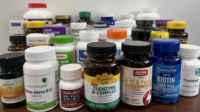
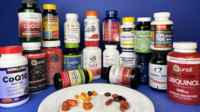

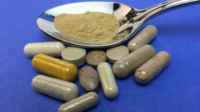

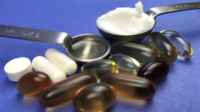

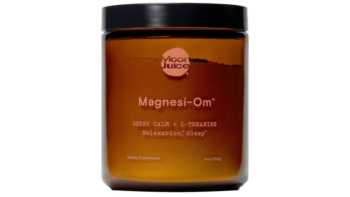
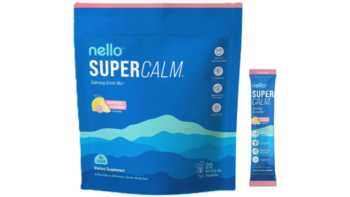
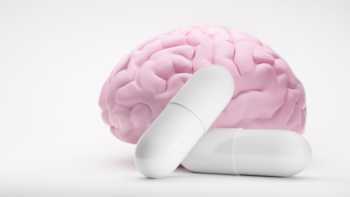





Submit your comment
This feature is restricted to active members.
Join now to add comments and get all member benefits, including over 1,400 reviews.
Join NowAlready a member? Sign in here.